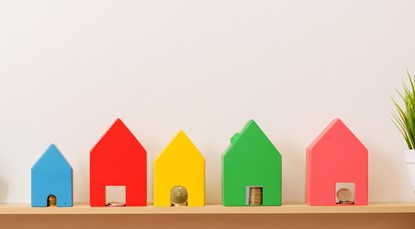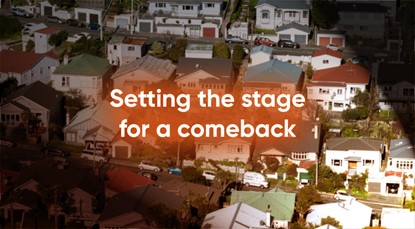Search results:
Opinion: The RBNZ has crossed a line with its new DTI limits
Ask the RBNZ, and it'll tell you it's putting DTIs in place to address concerns around affordability, and keep our financial system nice and stable. But Squirrel founder, JB, reckons the new rules are a ruse for the RBNZ to meddle where it shouldn't be - in wider housing policy.
Rising listings: Construction's got some hurdles to jump
Many Kiwi who had been holding off selling their properties are now putting them up for sale. But with plenty of existing properties entering the market, the outlook has just darkened further for developers of multi-unit complexes.
Why you shouldn't skip the insurance valuation
Insurance valuations are one of the best lines of defence you can have as a property owner, helping to make sure your assets are well covered in the event of a natural disaster. Here's what you need to know about how they work.
Four reasons why house prices are expected to rise throughout 2024
Why Tony Alexander believes that the 6% annualised pace of house price gains seen in the second half of 2023 may almost double once we get to the second half of this year.
A Squirrel case study: Forging a new model for affordable housing in New Zealand
In this case study, we sat down with residential housing developer David Duggan to chat about his journey bringing an innovative new leasehold development to life on the shores of Lake Taupō, and how partnering with Squirrel made it happen.
7 signs house prices are riding the upward wave
The recent migration boom and rising construction costs have contributed to the growth in house prices — but what are the other factors causing them to rise, and how long will prices continue to increase?
Market update: Is NZ staring down the barrel of a major house price comeback?
New Zealand has narrowly escaped the technical recession that was called a few months back — but Kiwi households are still feeling the pressure from high interest rates. So with an Official Cash Rate (OCR) announcement on the cards for 4th October, what’s likely to happen with mortgage rates from here?
Major cities slowly turning up the heat in the housing market
Seasonally adjusted data shows that house sales have risen again by around 8% in the past three months, and this has been led by Auckland, along with Wellington and Christchurch. But sales isn't the only thing that's grown — the recent immigration boom has added extra pressure to Auckland's housing stock. Will falling new-house construction in a time of strong population growth result in property shortages in 2024?
First home buyers: Ways to get into your own home with just a 5% deposit
Lenders will usually require you to front up with a deposit of 20% of the purchase price for an existing property – 10% if it’s a new build – before they’ll consider giving you a mortgage on it. If you’ve been saving hard only to have your deposit goal feel like it’s getting further out of reach – or you just don’t want to have to wait years and years (and years) to get into your first home – there are options out there.
Market update: OCR stable at 5.50%, but Kiwi are holding their breath for election day
Sticking to the path it laid out for us in July, the RBNZ has opted to hold the OCR steady at 5.50% - and they're saying it might be 2025 before rates start to come down again. But global uncertainties, deflationary forces in China and the upcoming election has everyone holding their breath.
Aussie bankers should be losing sleep over NZ’s housing market – but not for the reason they’d have you think
Bank margins in New Zealand are at record levels right now – higher than they’ve been in about 10 years. So why are headlines painting the image that bank margins are worryingly low?
Economic weakness isn't stopping the housing market upturn
The coming weakness in our economy would imply at a minimum no recovery in the housing market and maybe a continuation of the weakness since late-2021. But there are many other factors in play — so will the recently developed upward momentum continue into 2024?













